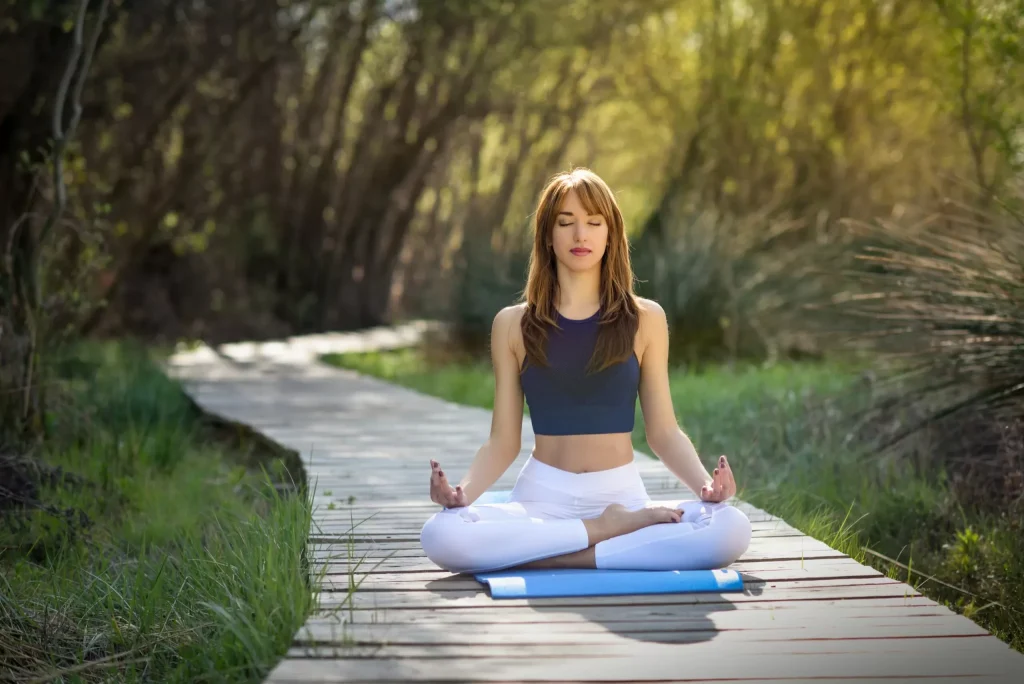
As we celebrated meditation day on May 21st, 2021. I was thinking about the most common question I had heard to this date “What is meditation?”. We all have heard that meditation helps reduce stress and anxiety, improve your sleep and memory, including several other benefits associated with the practice. However, is it the ultimate tool for most of our psychological issues? or it’s just a placebo effect in action?
You should read further if you:- feel meditation is not for you.
- are an explorer planning to start meditating?
- are interested in having a new outlook on the centuries-old practice of meditation.
Definition
💡 Meditation is learning the ability to control the most precious mental resource – Attention.Our brains have evolved remarkably over millions of years. Increase in size and capabilities, which makes humans unique, like the ability to have conscious thoughts and self-awareness, etc. How awesome is it that we can analyze a thought we are having at the moment and assess the consequences if we act on that thought? However, paying attention is one of the most tasking jobs for our brain to do. Don’t believe me? remember the last time you saw a documentary and compare it to how you felt after watching a re-run of your favorite show for the 100th time. One thing which we all live by is the “Law of least effort”. So to free our mind from continuously attending to all the stimuli around us, we form habits. When we encounter a novel situation, we attend to it, analyze it, and act on it, and based on the reward or punishment we receive for that action we start discovering patterns. If you encounter the same situation your brain knows how to deal with it and our autonomous circuitry takes over.
The mind-body connection
Now it might have made sense to all of us why it is so easy to develop a “bad” habit. Any consequences associated with them are in the future but the immediate reward we experience is prioritized. This is exactly where our mind-body connection can help us. Anytime you are about to make an autonomous decision that you know is not good for you in the long run we experience physiological cues like an increase in heart rate. They are extremely subtle but if we are paying attention we can alter the action we were just about to perform, and this ability to catch those subtle signs and attend to them is what mediation is.
Benefits
Let’s examine some of the most common benefits of mediation we hearImproves sleep:
Sleep is especially difficult as it depends on many different factors, no amount of meditation can help if you are experiencing high levels of stress or an imbalance in your diet. It is like the question which came first, the chicken or the egg? Because improving sleep is the first step you should take to improve your mental health, our sleep is extremely sensitive to any changes in us or our environment. We recommend maintaining a consistent sleep schedule as a starting point and working with calming meditations like breathing exercises or mindfulness practices before going to bed to help prepare your mind for rest.
Reduces stress:
We all experience stress. It is a normal part of life. However, our minds are also capable of creating a stress response merely through our thoughts. The body responds the same, whether the stressor is real or a story in our head. But what if you could identify the thoughts or environmental factors likely to make you stressed. Once you become aware of these processes, you can choose how to respond. If you are not aware, you do not have a choice. Developing these skills is not easy, but with practice, you can train your mind, rewire your brain, and reduce your overall stress.
Controls anxiety:
We usually experience anxiety by thinking of a future event. Similar to reducing stress, if we can learn to identify what triggers the anxiety we can control the anxiety at the onset and we can plan a course of action on how to avoid or tackle such triggers.
Improve Focus:
Anxiety and stress often lead to difficulties in focus or concentration. Others may experience difficulties with focus due to attention deficiency. While anxiety/stress and attention deficit concerns often have different causes and different brain responses, meditation can help in both cases. In the case of attention deficiency focus style, meditation experiences can help develop those skills and strengthen brain circuits related to concentration and focus.
And the list goes on, but notice any pattern in all of them? We all are habitual beings, by the time you reach the age of 35 almost all of your daily tasks are preprogrammed in your brain. Employing self-awareness is what we believe your main goal should be when learning to meditate. Increasing the awareness around your thoughts and behaviors can help you improve your relationship with yourself and others.
Summary
We are living in the digital age and in many ways, this is a double-edged sword., where things are getting smarter and freeing us to do more, to be more, but are we? M犀利士 ost of the tech today is designed to capture our attention. Meditation can help you get the control back by training your mind to be more aware and attentive. I hope that now you can see meditation from a new perspective, and are intrigued enough to try it. Happy Meditating 🙂.

